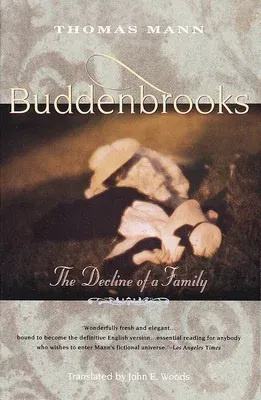Thomas Mann
(Author)Buddenbrooks: The Decline of a FamilyPaperback, 28 June 1994

Qty
1
Turbo
Ships in 2 - 3 days
In Stock
Free Delivery
Cash on Delivery
15 Days
Free Returns
Secure Checkout

Part of Series
Vintage International
Print Length
736 pages
Language
English
Publisher
Vintage
Date Published
28 Jun 1994
ISBN-10
0679752609
ISBN-13
9780679752608
Description
Product Details
Author:
Book Format:
Paperback
Country of Origin:
US
Date Published:
28 June 1994
Dimensions:
20.47 x
13.41 x
3.2 cm
Genre:
Family
ISBN-10:
0679752609
ISBN-13:
9780679752608
Language:
English
Location:
New York, NY
Pages:
736
Publisher:
Series:
Weight:
512.56 gm